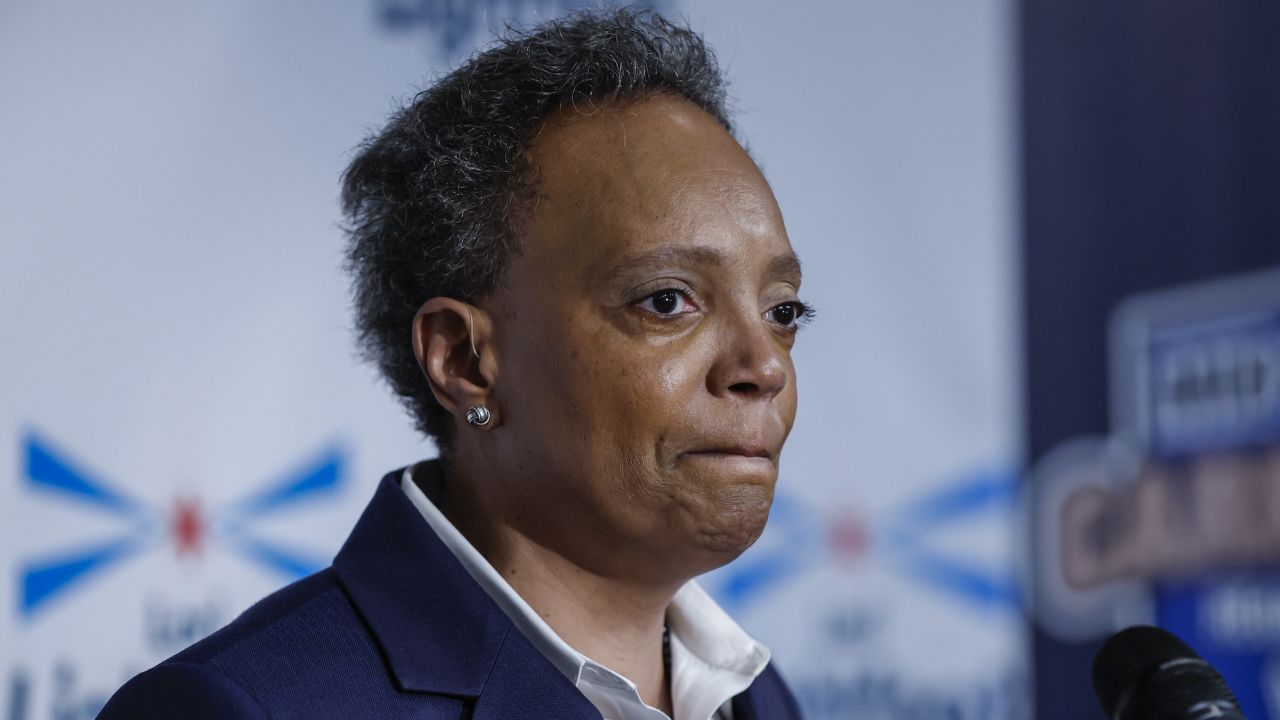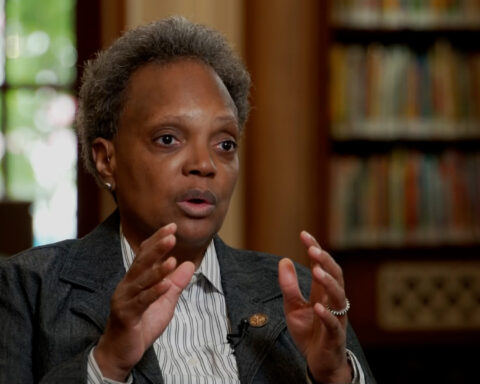By Eric Bradner
Paul Vallas, a long-time public schools chief who ran on a tough-on-crime message, and Brandon Johnson, a Cook County commissioner backed by progressives and the Chicago Teachers Union, will advance to the April runoff.
Tuesday’s municipal election marked the first time in more than 30 years that Chicago has ditched its mayor. Lightfoot could not overcome years of fights with the police and teachers’ unions, a spike in violent crime during her administration and Chicago’s slow recovery from the Covid-19 pandemic.
Lightfoot conceded Tuesday evening, telling supporters that she is now “rooting and praying for the next mayor of Chicago.”
Vallas built his campaign around a pro-police, tough-on-crime message – one he highlighted in celebratory remarks after Lightfoot had called Vallas and Johnson to concede.
“We will have a safe Chicago. We will make Chicago the safest city in America,” Vallas said.
The big question over the next five weeks is whether Vallas’ more conservative message will attract enough support to win in a city where nearly 83% of votes in the 2020 presidential race went to the Democratic ticket.
Johnson, in his speech Tuesday night, showed the first signs that he will seek to consolidate liberals who supported other candidates in the nine-person field. He cited each candidate by name.
“If you voted for one of those other candidates, I want you to know that I’m running to be the mayor of you, too,” Johnson said.
Because no candidate is on course to top 50% in Tuesday’s election, the top two of the nine candidates on the ballot are moving on to the April 4 runoff.
Lightfoot, the first Black woman and first out gay person to serve as mayor in a city often pilloried by conservatives in national debates over violence and gun control, rose to prominence as a pugnacious reformer promising a break from the corruption and clubby governance that had long marked Chicago politics.
But years of contentious brawls over policing, teacher pay and Covid-19 public safety policies, as well as mounting complaints about long waits in Chicago’s public transit system, left Lightfoot vulnerable, raising the stunning prospect of the Second City ousting its incumbent mayor in the first round of voting.
Lightfoot found herself with few allies in her bid for a second term, and a host of powerful interests aligned against her. The Chicago Fraternal Order of Police endorsed Vallas. The Chicago Teachers Union backed Johnson. Democratic Gov. J.B. Pritzker, with whom Lightfoot has clashed, stayed out of the race entirely.
More than 507,000 ballots had been cast by the time polls closed Tuesday, Chicago elections officials said. More mail-in votes will be added to that total as they arrive.
Concerns about crime and public safety have rattled Chicago. Violence in the city spiked in 2020 and 2021. And though shootings and murders have decreased since then, other crimes – including theft, car-jacking, robberies and burglaries – have increased since last year, according to the Chicago Police Department’s 2022 year-end report.
The dynamic has been similar to what played out in other big-city mayoral elections in recent years. In New York City, Mayor Eric Adams won with a pro-police, tough-on-crime message in 2021. But in Los Angeles, voters elected Rep. Karen Bass last year over billionaire developer Rick Caruso, who had pumped $100 million into a campaign in which he had focused on a pitch for law and order.
Chicago’s municipal elections are non-partisan, but none of the candidates on the ballot Tuesday called themselves Republicans. Still, Lightfoot sought to portray Vallas that way. He’d attacked her record on crime early in the campaign and was backed by the conservative police union.
Johnson, meanwhile, ate away at Lightfoot’s support among progressives. He once advocated reducing police funding, but has backtracked from that message more recently, arguing that he meant he wants to increase funding for other priorities such as mental health treatment.
“Lori Lightfoot hasn’t made Chicago safer, but I will,” he said in an ad. “It’s time to get smart, not just tough.”


